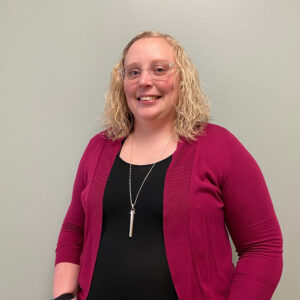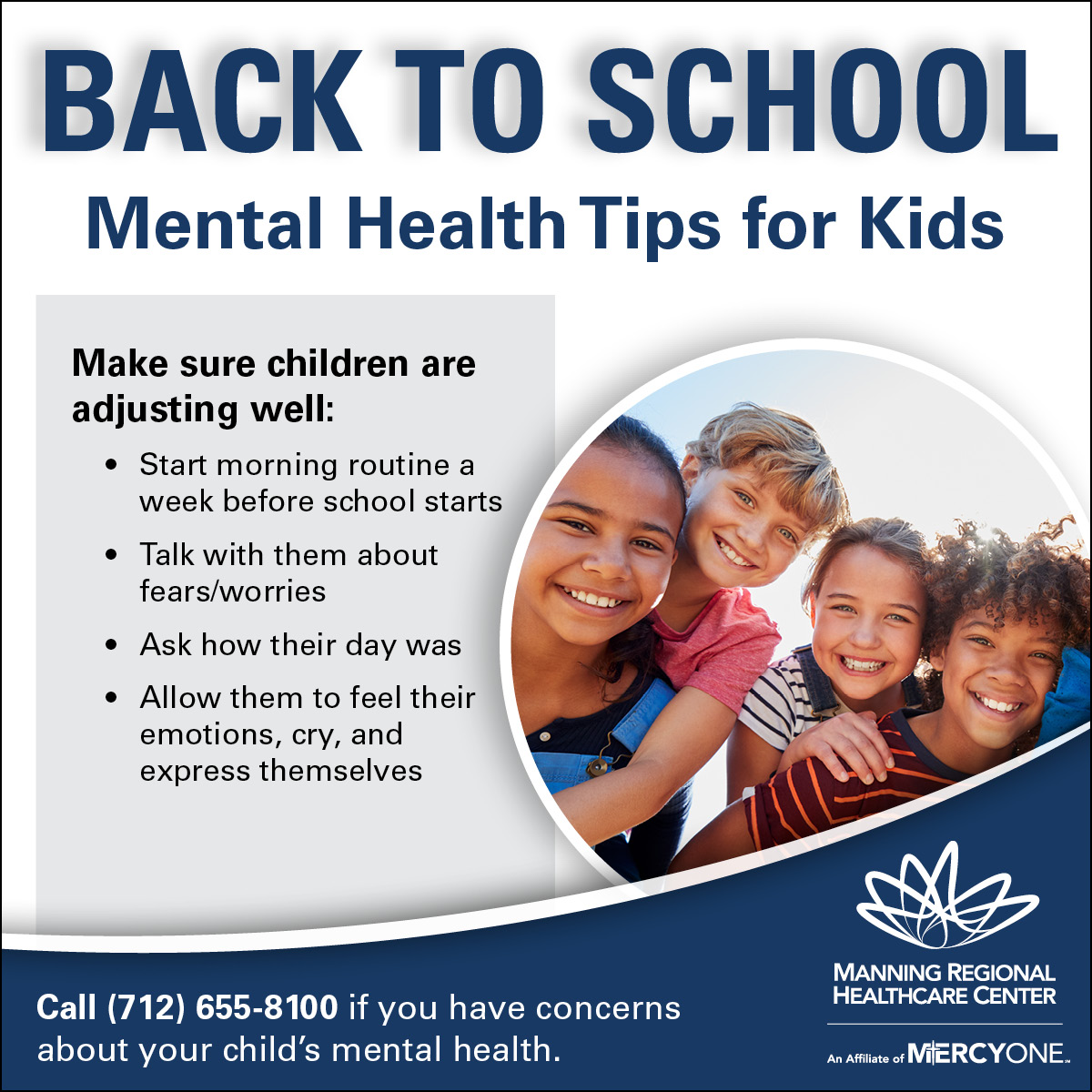As children will soon transition from their summer schedules and head back to school, MRHC shares tips to ensure they are mentally ready and prepared to adjust well to their new routines.
To make the transition back to school easier, Hollie Schechinger, LMSW, a designated mental health counselor at MRHC, recommends starting children’s morning routine a week or so before school starts. She also stresses that communication is a big part of helping children with anxiety and other mental health problems. 
“Talk with them about their fears and worries so that you can reassure them that they will be okay,” Schechinger said. “Once school starts, ask them how their day was. Make sure they know that you are a safe person they can talk to. If they look upset or their behavior changes, then have a conversation with them. Just check in with them. Keep that line of communication open with your children. Allow them to feel their emotions, cry, and express themselves.”
Warning signs that a child is not adjusting well or that they are struggling mentally can appear physically or mentally.
“In children, a lot of their anxiety symptoms come out as stomach aches or headaches,” said Schechinger. “If they are complaining of them consistently after school, they may not be adjusting well. If they are sleeping immediately after school for a long period of time or just not having very good behaviors after school these could be signs that they are struggling.”
If you notice these changes in your children and intervention methods you have tried with your child do not seem to be helping, Schechinger offers counseling services in Manning three days a week for individuals 12 and older.
“I provide mental health therapy by using a wide variety of interventions and therapy models,” Schechinger said. “I will sit down with your child and complete an assessment and engage them in conversations. I will then schedule follow-ups to help with coping skills and other interventions to help your child cope with their mental health. Counseling is a safe place for them to share what they are feeling and what is happening in their life. It is also a place where they can share their feelings or learn what their feelings are. Counseling helps people learn how to cope with their mental health concerns so they can live a productive life.”
For parents with children younger than 12 who appear to be struggling, Schechinger recommends taking them for a walk or sitting down and playing with them, so they feel more comfortable talking. She stresses that keeping communication open with your child and making sure they know they can speak with you is important in helping them with their mental health concerns. There are also some child mental health therapists in the area that Schechinger can put parents into contact with if needed.
To schedule a counseling appointment with Schechinger at MRHC, call (712) 655-8100. Referrals are not needed. If you need additional mental health information, education, or would like to discuss support for your child, please contact their primary care physician at (712) 655-2072.
